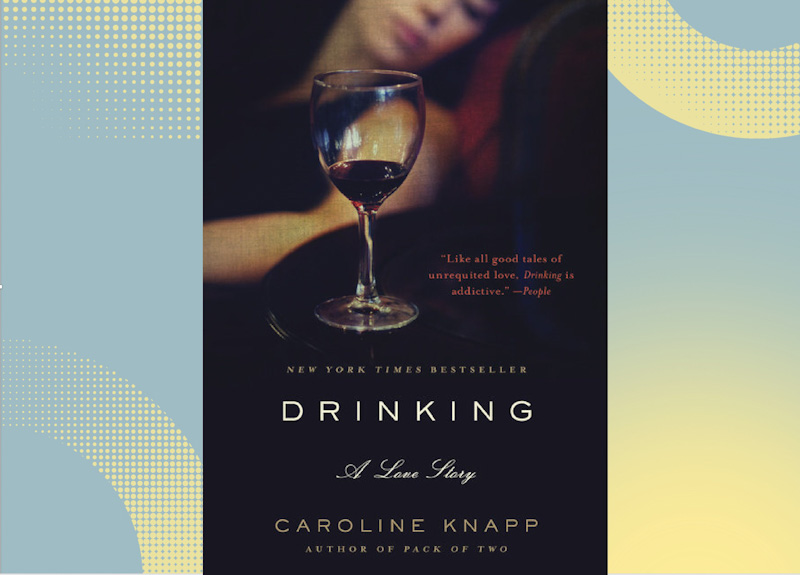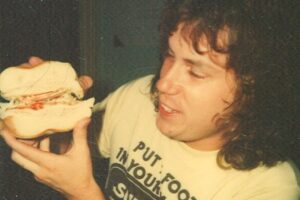‘Drinking: A Love Story’ | All Sober Book Club
A modern classic of the addiction-memoir genre, Caroline Knapp's book is remarkable for giving shape to an extremely common but nearly untranslatable experience: What does addiction feel like?

Drinking: A Love Story by Caroline Knapp | 304 pp. | Dial Press / Penguin Random House | 1996
Welcome to All Sober Picks, where we’ll spotlight favorite works from the wide world of addiction and recovery arts, culture and education. We’ve got recommendations for books, films, shows, albums, art exhibitions and more, coming your way. Join the conversation, and share your personal favorites!
When it was first published in 1996, Caroline Knapp’s memoir, “Drinking: A Love Story,” became a near-instant sensation and a bestseller. A young woman with a comfortable upbringing, a high-flying job and an active social calendar whose life, all along, had been consumed by alcohol? It turned out Knapp wasn’t the only one.
“Drinking” remains near the top of the list of books recommended to people taking the first uncertain steps toward recovery, but hundreds of thousands of people have read it. It is difficult to quantify how far its existence has gone in cracking stigmas and stereotypes about addiction.
“Drinking” is a deceptively straightforward story, eloquent but unsparing, about a woman who loves the feeling of alcohol and can’t see in the moment how it slowly yet completely seeps into every corner of her life. One short paragraph, about halfway through, pretty well sums it up. “It can make your life feel full of risk and adventure, sparkling and dynamic as a rough sea under sunlight,” writes Knapp. “In fact, the opposite is true: Drinking brings your life to a standstill, makes it static as rock over time.”
Knapp, writing sober, excavates her childhood and unpacks her love life: An emotionally elusive psychologist father, a boyfriend who brings home fashion magazines to point out how she should improve her appearance.
But Knapp’s great love is the one that diminishes her the most as the years pass. The book weaves in some stats and science on alcohol addiction, and we glimpse some of the author’s friends whose addictions drag them to horrifying places. Knapp’s own history, though, of small indignities, never-resolving frustrations, rage, shame, numbness and inertia, may be the most familiar thread for many readers who began to give up their lives in addiction.
“These sound like such stupid little escapades, such unnecessary little falsehoods,” Knapp writes about the lies, insecurities and bouts of what one friend calls the “uh-ohs” — sloppily covering up infidelity, forgetting where you parked your car in a blackout. But they chip away at the soul, out of view from most people, compounding the isolation of the disease until the end.
In recovery, we’d say Knapp’s memoir has a happy ending. But she does not let up on the book’s blunt intensity in the final chapters of early recovery. At a reunion of three friends from rehab, one shows up intoxicated and hostile, telling her she’s fooling herself. Sometimes situations and emotions are overwhelming. Yet other times: “To rediscover [joy] in sobriety is an amazing thing,” Knapp notices, “the emotional equivalent of realizing that your shoes are painfully tight and then sighing with relief when you finally take them off.”
Caroline Knapp died tragically young, but sober, of lung cancer in 2002. Her story was praised as an accomplishment in her lifetime because it was unflinching and brave to publish, but it endures as her legacy to those in addiction and recovery because it is ordinary.
More Inspiration
Subs & Drugs & Rock & Roll, Part 3: 'I'm a Loser (And I'm Not What I Appear To Be)'
Don Fertman reaches bottom as the jelly donut hits the wall. The latest installment of the longtime Subway exec's memoir.
The Joy of Baking (Sober)
Two months sober, Annie Zimmerman decided to make cookies. Now, her hobby turned passion yields fulfillment, connection and delicious soberversary cakes. Read the interview!
Subs & Drugs & Rock & Roll, Part 2: A Day in the Life
Don Fertman woke up one morning 40 years ago and poured himself a drink, as usual. But the future Subway exec didn't know this day would be far from ordinary.
Running Toward Recovery
Seeking purpose in early recovery, Annie Zimmerman rekindled an old fire with distance running — and found it carried her through some of her toughest trials in sober life.
Closer to the Shore
On Ben Tuff's third day in inpatient treatment, he had a surprising encounter that would eventually lead him to attempt a grueling 24-mile swim across the Narragansett Bay.
Subs & Drugs & Rock & Roll, Part 1: With a Little Help From My Friends
Don Fertman, longtime Subway exec, writes about a pivotal moment in his 40 years of sobriety: what happened after he went public about his recovery on "Undercover Boss."
Sober Holiday Tips: Meeting 'Share-a-Thons'
Need to get out of the house for a bit and see some friendly sober faces? Recovery support group meeting marathons run 24/7 from Christmas Eve through New Year's Day.
'Swim Tuff: How I Swam My Way Out of the Bottle' | All Sober Movie Night
Coming out of severe alcohol addiction, Ben Tuff barely knew how to swim. Ten years later, he makes a bold attempt to traverse the Narragansett Bay, taking on 24 miles of ocean in one day.










